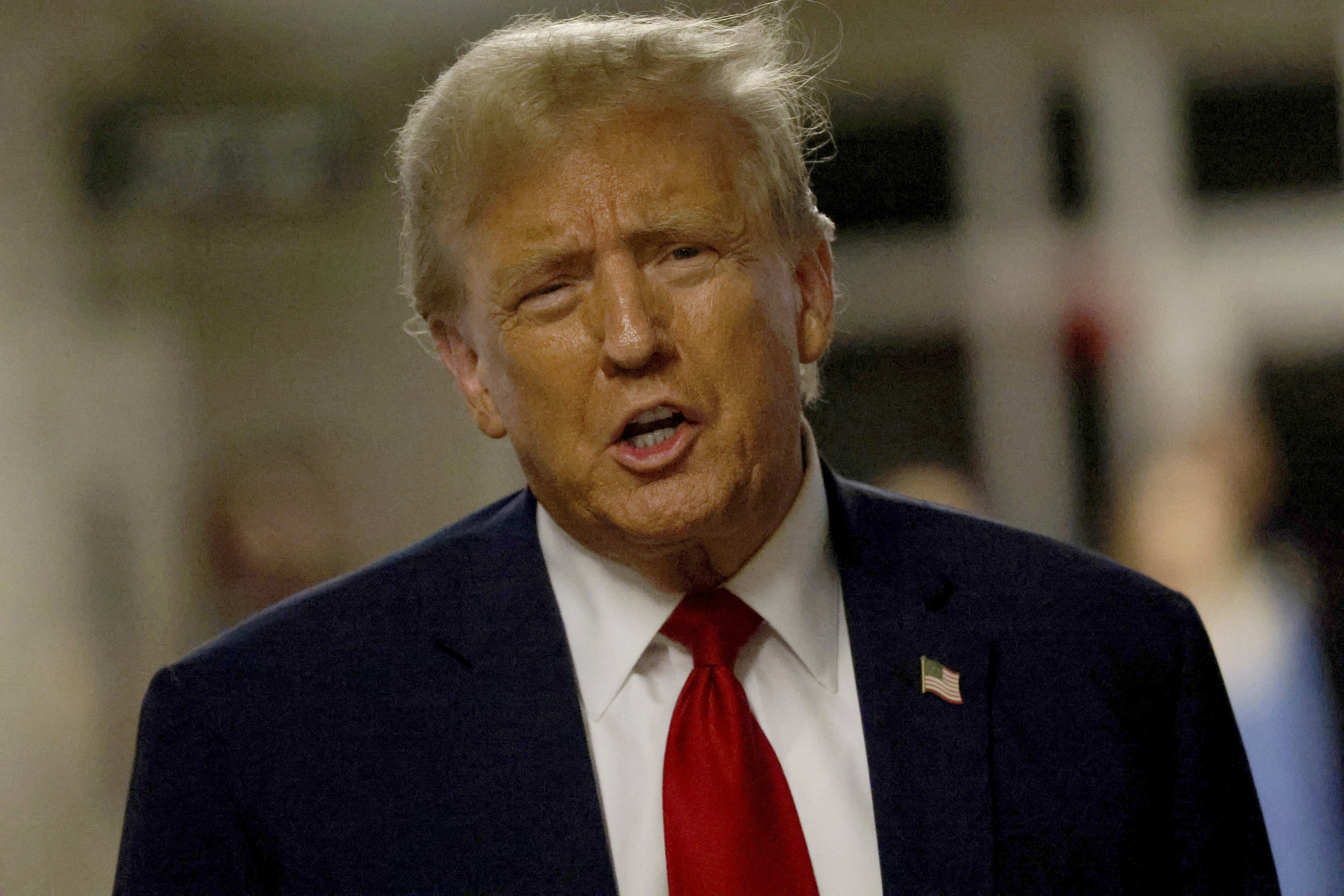Accused Fort Hood shooter Maj. Nidal Hasan rested his defense after presenting no witnesses at trial Wednesday morning.
Military prosecutors rested Tuesday, the 11th day of the trial, after calling nearly 90 witnesses.
Prosecutors requested the rest of the day to discuss jury instructions with the judge after Hasan rested with no defense.
Jurors are expected to begin deliberations on Thursday.
Hasan hasn't challenged the government's case that alleges how and why he committed the deadliest mass shooting on a U.S. military base in history.
However, outside his trial, Hasan has been telling reporters his side of the 2009 Fort Hood shooting rampage.
Those leaks to the press are among the signs that the Army psychiatrist, who is representing himself and was expected Wednesday to begin presenting his defense, might offer no defense at all in court before jurors weigh his guilt or innocence on charges of killing 13 people and wounding more than 30 others.
U.S. & World
He began the trial signaling that he would call on just two people to testify -- one a mitigation expert in capital murder cases and the other a California professor of psychology and religion.
But Hasan on Tuesday indicated to the judge, Col. Tara Osborn, that he would not call either witness. That left Osborn raising her own skepticism that Hasan would seize his last chance before the case is sent to a jury of 13 military officers.
"We'll resume (Wednesday) with the defense's case, if any," she said.
On Wednesday, accused Fort Hood shooter Maj. Nidal Hasan rested his defense after presenting no witnesses at trial.
Striking his witnesses was the latest unusual defense decision by Hasan, who only briefly questioned three prosecutor witnesses, and has otherwise sat quietly at the defense table.
But behind the scenes, Hasan has allowed a former lawyer to give The New York Times documents not part of the trial and sent a personal letter to the local newspaper.
Taken together, they reveal Hasan, an American-born Muslim, justifying the shooting as a necessary killing of American soldiers to protect Muslim insurgents in Iraq and Afghanistan.
The latest were two emails, provided to the Times at Hasan's request and published by the newspaper Tuesday, in which Hasan asks his Army supervisors how to handle three cases that disturbed him. One involved a soldier who reported to him that U.S. troops had poured 50 gallons of fuel into the Iraqi water supply as revenge.
"I think I need a lot of reassurance for the first few times I come across these," Hasan wrote in an email on Nov. 2, 2009, three days before the shooting.
Hasan's email signature included a quote from the Quran: "All praises and thanks go to Allah, the Cherisher and Sustainer of the Worlds."
On the first day of the trial, Hasan had tried to cross-examine a former supervisor about the fuel-dumping allegations, but Osborn quickly silenced him. She ruled the line of questioning out of bounds and not relevant to the case.
Richard Rosen, a military law expert who teaches at Texas Tech University and has followed the trial, said Hasan might be using the media to present the case that Osborn won't let him in court.
"I thought he might use this as a show trial to kind of put the Americans on trial for things we're doing in the Middle East and Afghanistan," Rosen said. "But this may be an alternative means of doing that."
What's in the leaks shouldn't influence the jury, however, since they are barred from reading media reports about the case during the trial.
John Galligan, Hasan's former criminal lawyer who gave the documents to the Times, told The Associated Press that Osborn barring a "defense of others" strategy by Hasan has made him "little more than a prop in the courtroom."
Even if Hasan doesn't call any witnesses, he could put himself on the witness stand. Osborn on Tuesday reminded Hasan that if he did that, he would have to ask questions and then answers his own questions, and not just make statements.
Military law experts say Hasan would have more leeway during the sentencing phase to speak about whatever he wants.
"I suspect if he doesn't take the stand there, it doesn't rule out taking the stand in sentencing," Galligan said.
Many of the government's witnesses were soldiers who survived being shot. Several identified Hasan as the soldier who, while wearing his Army camouflage uniform, used a laser-sighted handgun to wreak chaos and carnage on the Texas Army post.
Dr. Tonya Kozminski, who worked a Fort Hood hospital shift with Hasan three weeks before the shooting, ended the government's case by describing what Hasan allegedly told her about getting deployment orders from the Army.
"The last thing he said to me was, `They will pay,"' Kozminski said.



